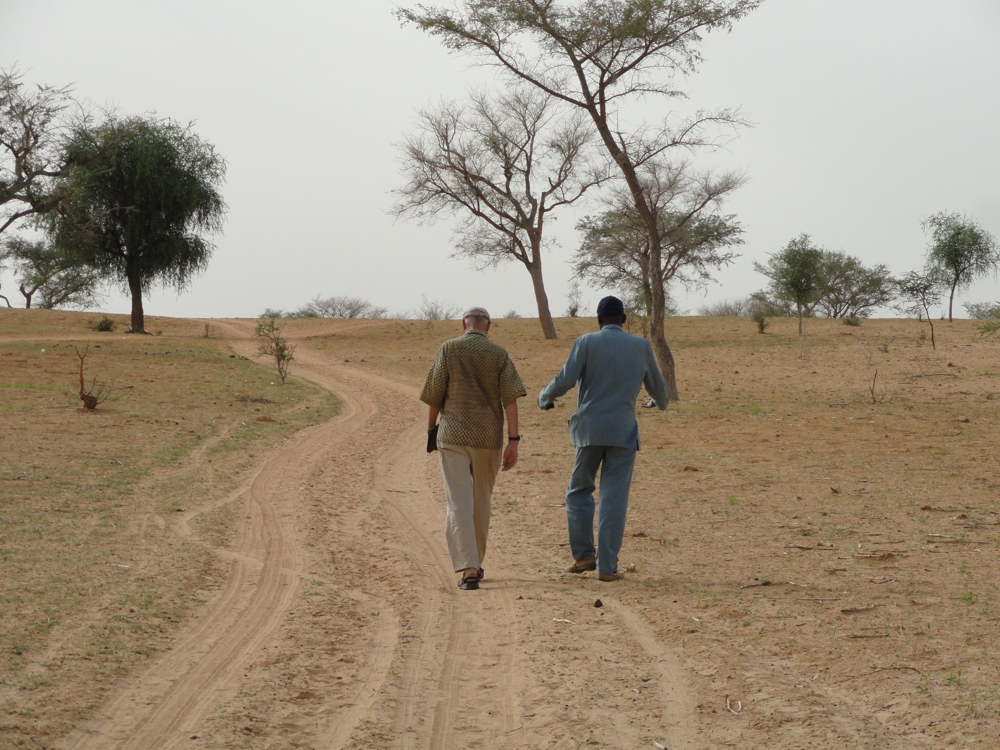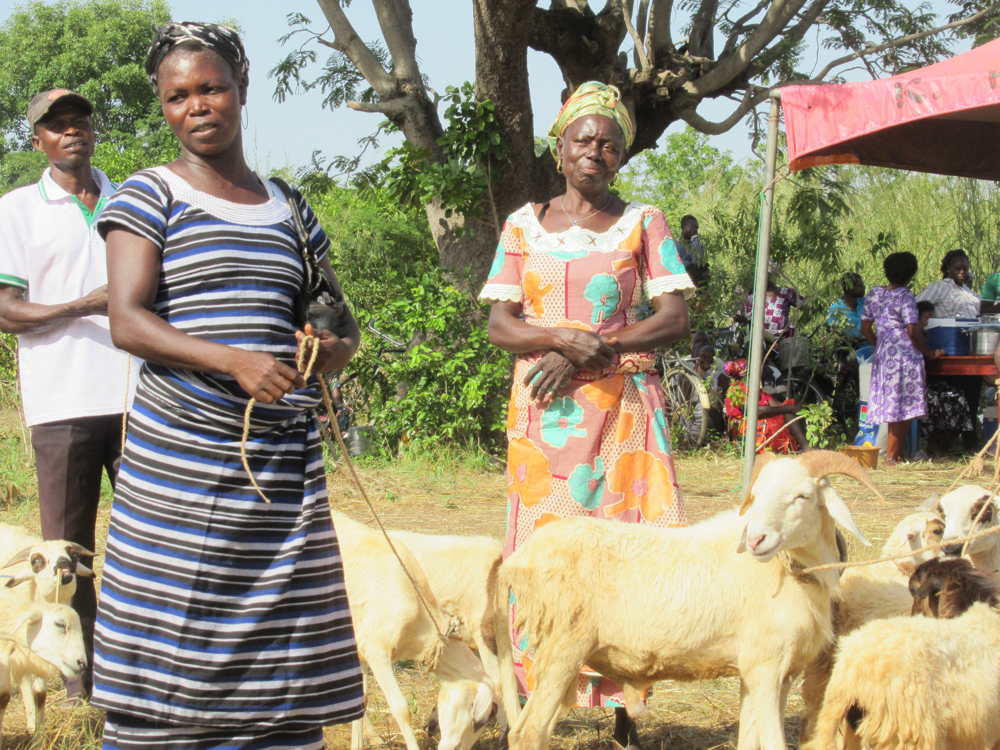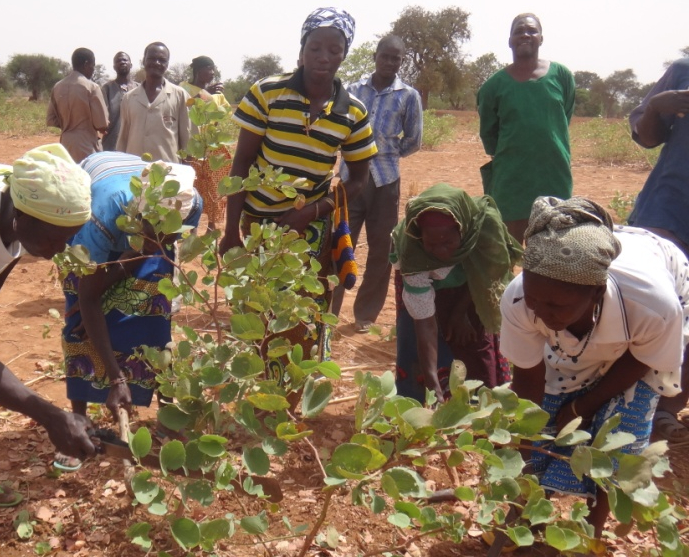Agroecology and Food Sovereignty are Critical in the Fight Against COVID-19 in West Africa
By: Peter Gubbels, Director of Action Learning and Advocacy for West Africa

For over 10 years, I have been working with Groundswell International to support our national level network members to improve food and nutrition security in rural communities across the Sahel, in West Africa. I am based in northern Ghana. In addition to my role with Groundswell, my wife and I have a small farm where we grow much of our own food.
I am deeply and personally concerned with how the COVID-19 pandemic is evolving here.
So far, the COVID-19 infection across West Africa is not severe. For reasons that puzzle those who study epidemics, the spread of the virus has been slow. But the virus will inevitably come. When it does, the Imperial College of London and the World Health Organization’s models indicate that fragile countries, including those in sub-Saharan Africa, will be hit the hardest.
If severe illness spreads widely in rural areas of Africa, where small-scale farmers produce 80% of the food consumed, food production may plummet.
Farmers and rural communities are highly vulnerable to the Coronavirus. Many rural communities lack basic infrastructure for sanitation and shortages of clean water challenge the all-critical need for good hygiene. Underlying medical conditions in Africa, including prevalent tropical diseases such as malaria, and malnutrition, increase vulnerability to COVID-19. The impossibility of maintaining physical distancing in crowded urban areas, in local markets, and with communal living arrangements all portend high rates of infection.
If measures to control COVID-19 prevent small scale farmers from working their land, caring for their animals, accessing markets to sell produce, buying food, or get seeds, hunger will increase.

African governments are currently making health their primary concern. However, it is essential they do not neglect livelihoods or food security. If food supply chains become disrupted and livelihoods untenable, vulnerable populations will move in search of assistance – with the unintended consequence of potentially further spreading the virus and possibly encountering heightened social tensions.
As we living in West Africa watch the rich and powerful nations of Europe and the United States fracture under the strain, we feel pangs of dread of what will happen here.
Among all the preventive measures that are possible to manage the COVID-19 pandemic, ensuring the availability and access of healthy and nutritious food is neglected. This is the major focus of Groundswell’s contribution to help mitigate COVID-19 in West Africa. One of the best ways to bolster a person’s immune system and resistance to disease is through eating healthy food.
The food security situation, however, is bleak. People here face a dual crisis of a deepening pandemic coupled with already high levels of food insecurity. Even before the pandemic, there were 237 million people in sub Saharan Africa suffering from chronic malnutrition. The majority of them live in rural areas. In West Africa’s Sahel region, nearly 30 million are struggling to find food.
The World Bank predicts that the COVID-19 pandemic is likely to cause a 7% decline in agricultural production and a 25% decline in food imports. In wake of stringent government measures to restrict movement, there have been disruptions to the agriculture supply chain, reduced imports and closures of many informal markets. The result has been the spike of food prices.
Ghana has already seen a 7.9% increase on the average cost of food. On the other end of the spectrum, the cashew nut, a major export crop for Ghana dropped in price by 63% between January and March.
What the COVID-19 pandemic highlights is that African countries have become too dependent on large international food industries and the global market. For decades, governments did little to protect small farms and food producers. Governments grew increasingly dependent on a few major suppliers of cheap, imported food. Since the 1980s, Africa has been a net importer of agricultural goods. Last year, according to the African Development Bank, approximately $35 billion worth of agricultural products were imported into Africa. This expected to rise to $110 billion by 2025.
Importing such massive amounts of food from international sources weakens African economies. It decimates the livelihoods of small scale farmers. It exports rural jobs away from Africa. In the growing urban centers, local peasant markets gave way to supermarkets. The aggressive expansion of imported processed foods also negatively affects human health. Over-processed foods are less nutritious. They are proven to contribute to growing levels of obesity and diabetes in West Africa.
The COVID-19 pandemic is pushing many to recognize the risks of dependency on international food imports. In poor communities in Africa, the breakdown of global supply chains has resulted in a fall in cheaper imports and a shift to local produce.

In this context, Groundswell International and its allies are sounding a clarion call about the importance of food sovereignty – the right of people to control their own food and agricultural systems and their right to produce and consume healthy and culturally appropriate food.
African countries are currently focusing their efforts on blocking the transmission of COVID-19. However, they urgently need to think about actions to improve food and nutrition security. They must also pay particular attention to supporting farming communities in adopting proven ways to produce high quality and nutritious food.
This involves the promotion of agroecology. This approach to agriculture enables small scale farmers to develop productive, climate resilient, and sustainable farming system. For example, in Burkina Faso, Groundswell is working with farmers’ movements using agroforestry, mixed cropping, rainwater harvesting, and composting to gain incredible results despite the water scarcity near the encroaching Sahara desert.
With these practices, they have reclaimed abandoned land for farming and obtained up to 130% yield increases of millet and sorghum, while regreening the landscape and adapting to climate change. In agroecological systems like these, the use of diverse and native species bridges wild and cultivated areas, helping to manage pests while also providing vital pollinators with continuous habitat.
Working with small scale farmers and their knowledge base, and linking these farmers to consumers in localized markets has two benefits. Agroecological farming methods are improved, and there is an increasing awareness among local consumers of the relationship between food production methods and improved nutrition and health.
Improving local links between agroecological food production and human nutrition is a critical step in fighting the COVID-19 pandemic in West Africa.
